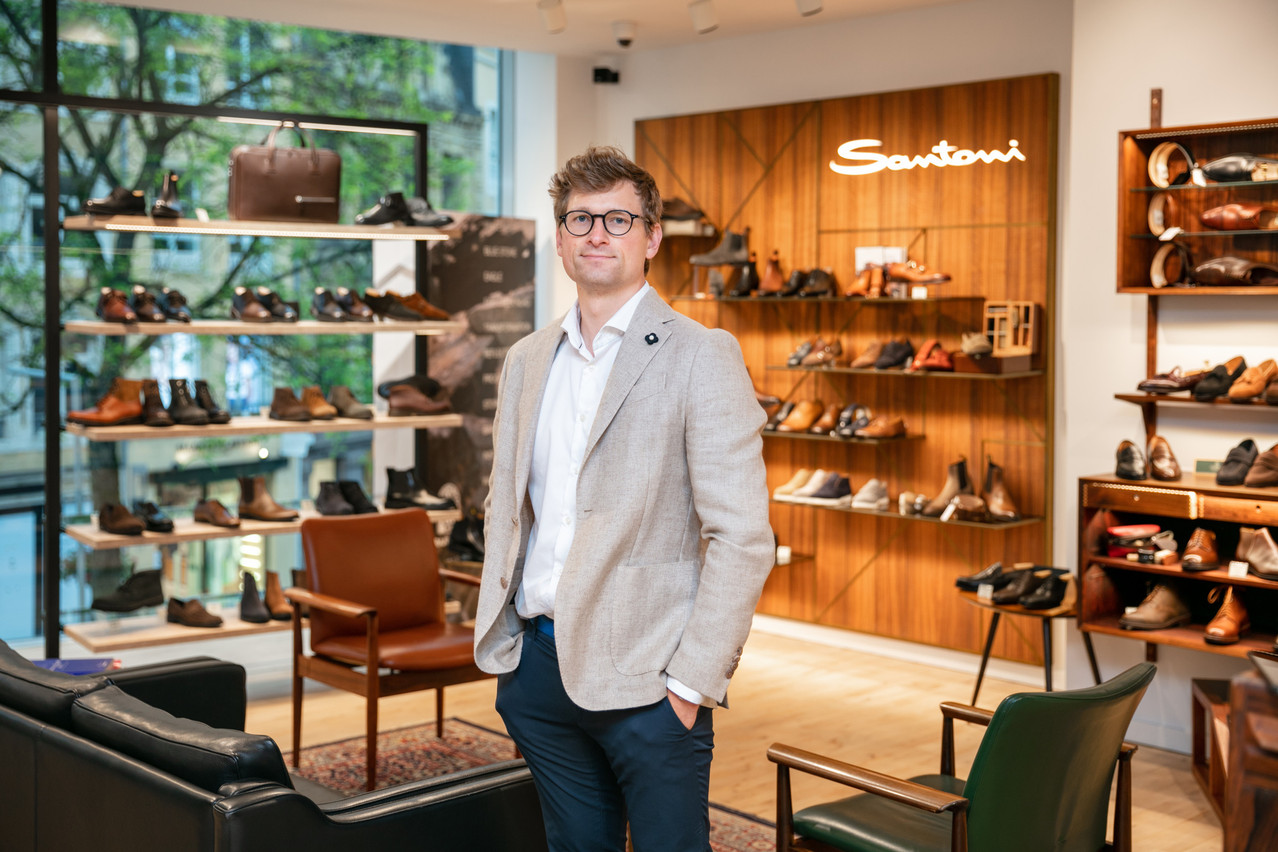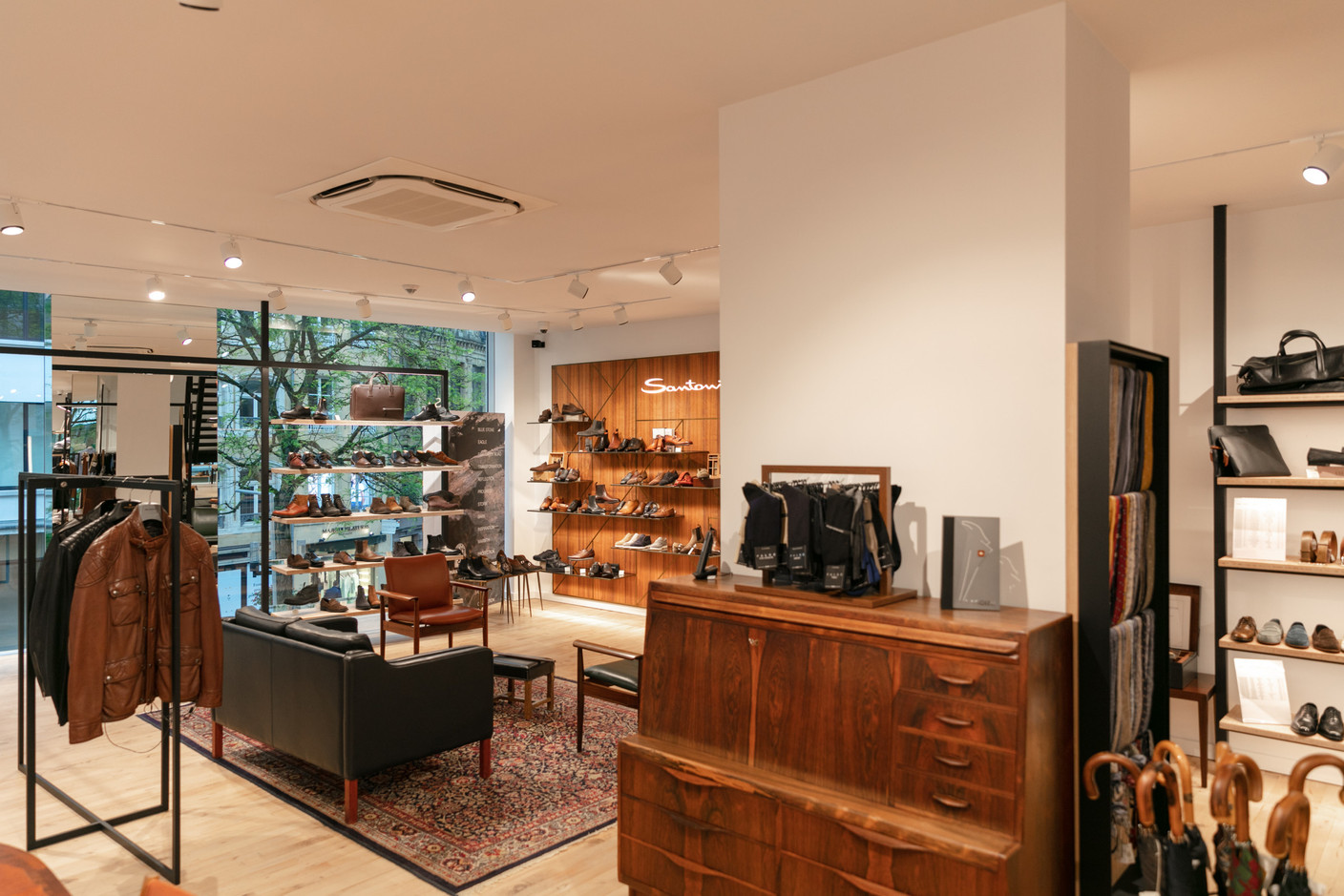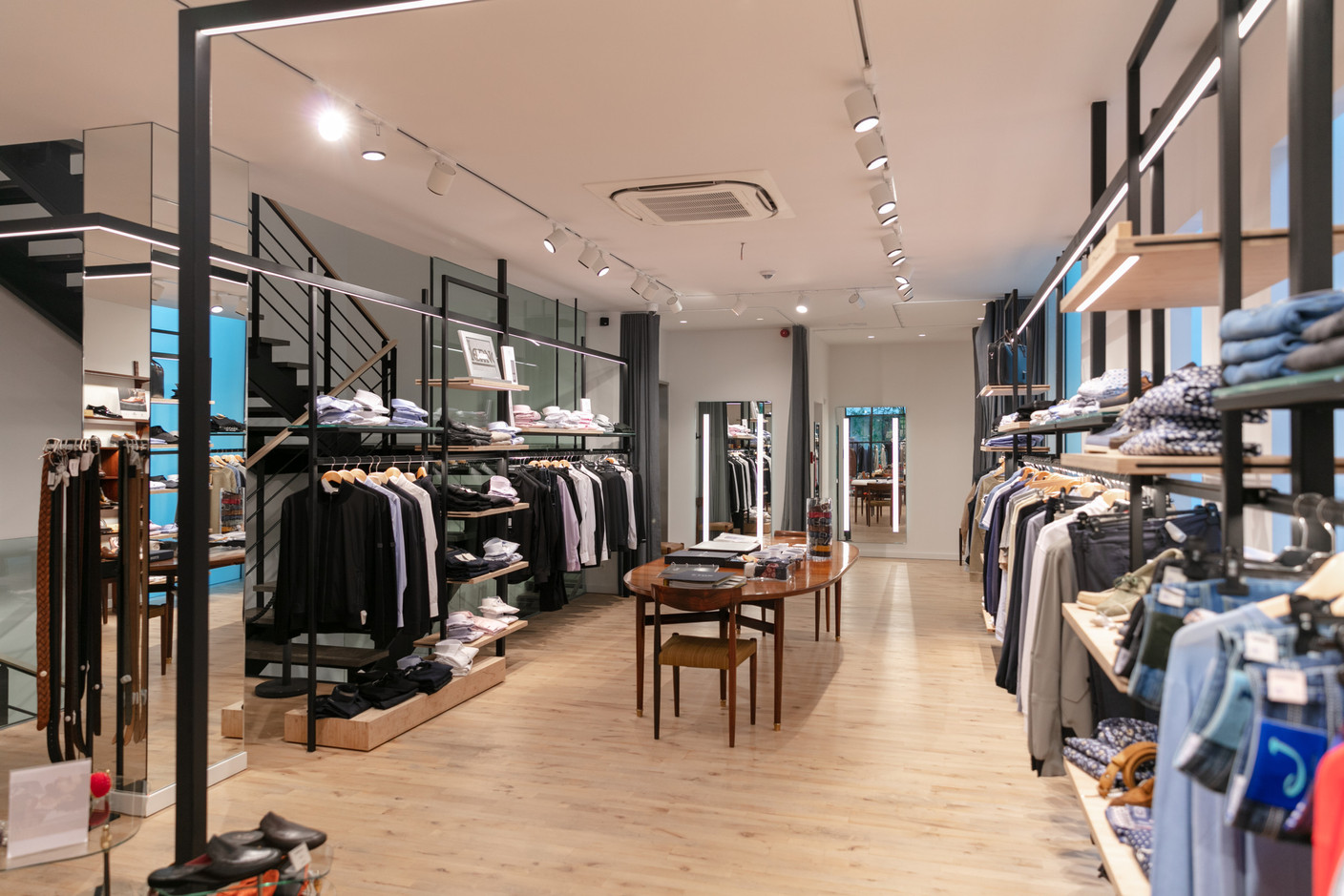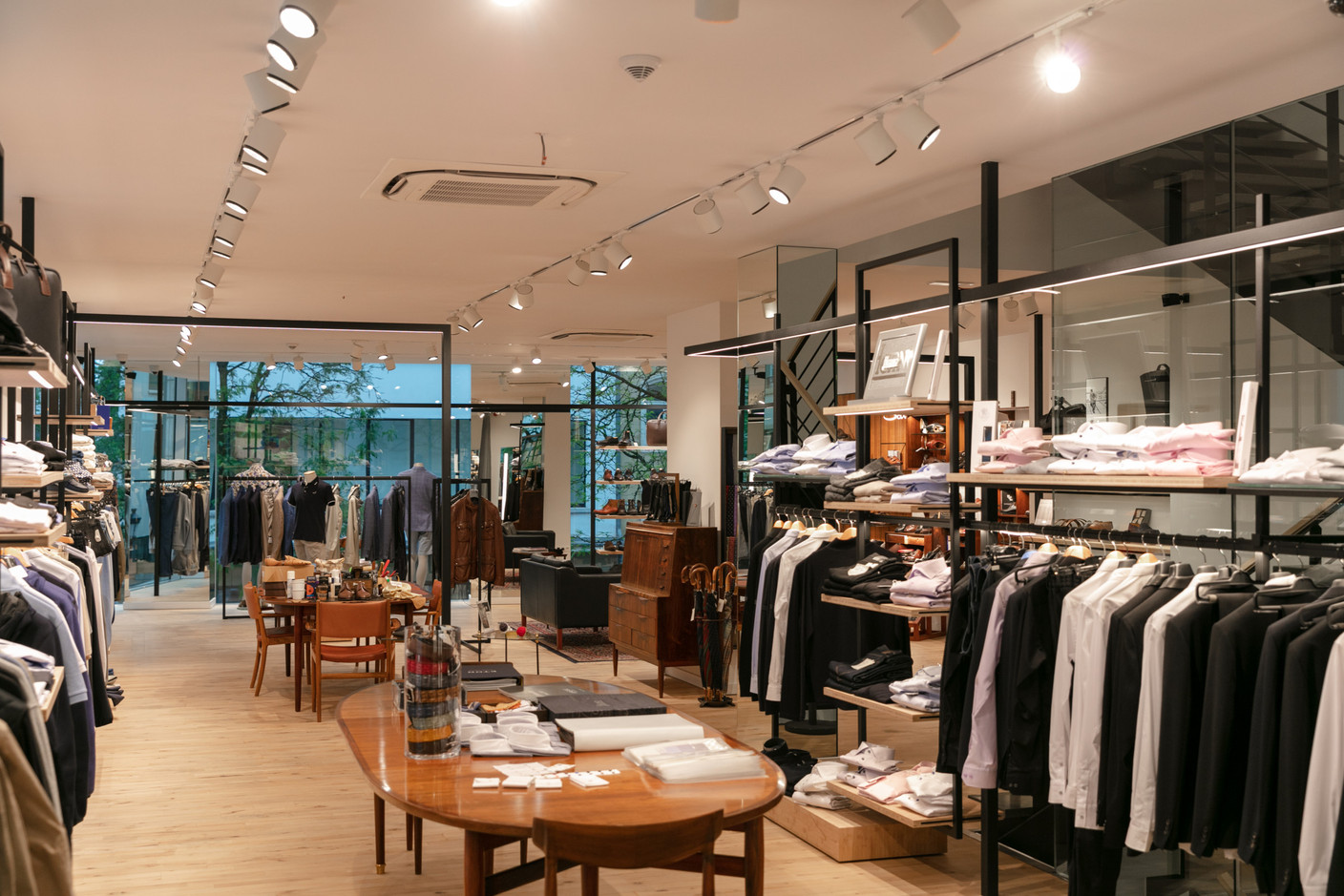This is the story of a Liège-based family business that has survived three generations and then arrived in Luxembourg in 2009. The owner, Vincent Lemineur, was offered the opportunity to take over the premises of the Tomcat shop in Strassen. "He always had in mind to enter the Luxembourg market one day", says Guillaume Leclercq, responsible for the business development of the brand.
The company then began a local development with a second point of sale a stone's throw from the grand ducal palace, then a third at the end of the Grand-Rue. Since 2019, only the latter has been active. "In organisational terms, it's easier to manage", says Leclercq of the 300m2 location on the corner of Grand-Rue and the Côte d’Eich.
A brand portfolio adapted to the market
Dressing men from head to toe: Vincent Verlaine's DNA is identical in Liège and Luxembourg, but with a few nuances. "We offer more shoes in Luxembourg, as well as things that are a little more colourful, and we find that they appeal more. The sales of suits are more pronounced here than in Liège, probably because of its status as a capital and financial centre,” says Leclercq.
As for the brands on offer, the company has to deal with geographical exclusivity and the evolution of the local commercial fabric. For example, it removed Fusalp from its range following the opening of the brand's boutique in the city centre last winter.
"In Liège, the focus is a little more on sportswear and trainers, but we work with a common stock and we can transfer items from one shop to another," the manager adds.
The Luxembourg market is more difficult to reach. But once you have converted it and the customer is satisfied, you can count on a loyal customer base.
Crossing borders
"The Luxembourg market is more difficult to reach. But once you have converted it and the customer is satisfied, you can count on a loyal customer base. It takes a lot of energy," he says.
The Luxembourg outlet employs six people, ten fewer than in Liège, although the surface area is equivalent. But management of the company's website is located on the Belgian side. If, for the moment, it proposes a delivery restricted to the two operated markets, the ambition to extend it is clear.
"We want to open the website to Europe for the winter of 2021-2022. It is our project to have this multi-channel element." This could then go beyond the borders of the Old Continent, as Guillaume Leclercq has observed a demand from Asia, and in particular from Japan: "Despite the delivery costs, which are equal to the distance, there is a demand."
However, there is no question of closing down the shops in Liège and Luxembourg: advice, information and maintenance are services to which the company is committed. The covid crisis has certainly dealt a blow to physical commerce, but when it reopened, the desire to treat oneself was particularly strong among customers. All the more reason, therefore, to continue this entrepreneurial adventure on both sides of the border.
This story was first published in French on . It has been translated and edited for Delano.






